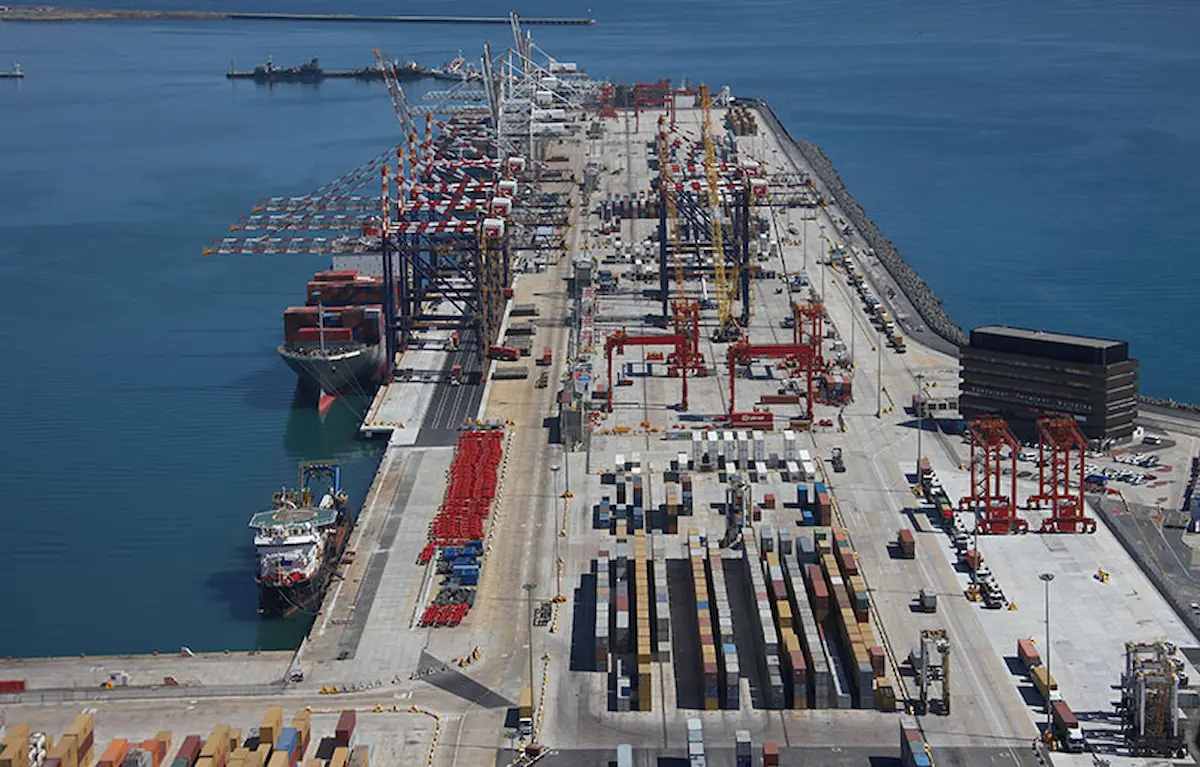
South African ports play an important role in supporting trade, investment and economic growth. Despite their strategic importance, they are among the least efficient in the world – a situation that helps to reduce costs, delay and reduce competition.
Since the National Ports (NPA) is ahead of long-term terminal privileges-often donated to a single operator in joint ventures with other Transnet sectors-there is an increasing view that the current approach may be taken to resolve the systemic issues facing the country’s port.
One of the most prominent voices that increases the alarm is Dr. Ryan Houthnene, the acacian economics director and a prominent expert in competition and regulatory policy. In an article presented at the 43rd South African Transport Conference*, Huturine argues that competition in port operations is essential.
“If we simply replace public monopolies with private things,” we will not lose the opportunity to build a more competitive and efficient port system that really serves the interests of the country, “he says. “
Exclusive Scores: a high -risk strategy
– Advertise here –
The main issue lies in the structure of the terminal privileges. NPA, still legally part of Transnet, has donated a number of 25 -year -old leases to single terminal operators, often involving Transnet Port Terminals as a joint venture partner.
This approach affects monopoly control and restricts the potential for improved service improvement, according to Hathorne. “Monopolys tend to charge more, less delivery, and slowly innovate,” he said. “We see a model of minor privatization rather than real reforms.”
There is an emerging pattern that the monopolies are partially privatized by Transnet, with little about competition and benefits that may bring consumers and port users. Instead of breaking the dominant positions, the current model enhances them – only with new stakeholders.
These concerns are repeated by the global criterion. The World Bank was recently killed by the Kip -Town Container Terminal of 405 ports worldwide in 2024, while Durban and Port Elizabeth also performed poorly. “While participating in the private sector is one step, it will become a lost opportunity if they do not introduce real competition,” warning.
Item for competition
But can the so -called “real competition” actually work? Huturren believes that there is enough competition in the South African port system. Durban is expected to expand its container transport capacity to more than 11 million TEUs-for several competing operators.
He explains: “Ports of similar size internationally with current Durban capacity four or more terminal operators competing with quality and cost.” “There is no reason that South Africa cannot follow this case.”
Legal framework already
The 2005 Ports Act provides the basis for introducing competition by separating NPA from Transnet and forced access to the port in a transparent and competitive way. However, the main stage of the NPA structural separation is not over.
“If the NPA was really independent,” it has an incentive to rent space to several terminal operators – maintaining the dominance of your sister company, “says Huturne. “
– advertising –
What can you do now
In the short term, Houthiorn offers a number of practical reforms. “We must complete the structural separation of the NPA from Transnet, as provided for in the ports of ports,” he said. “This allows the NPA to independently operate the Transnet’s downstream interests and invest in expanding the capacity of the port and activating the rival terminal operators.”
In addition, the Minister of Transport must issue a policy instruction that needs to evaluate competition in all future grant processes. The new Transportation Economic Settlement (TER) must be reviewed and, if necessary, modify the exclusive privilege agreements. He suggests: “The Com
Long -term outlook: Competition between port
Beyond urgent reforms, Huturren encourages the return of the port competition, as it can be seen before the formation of the 1910 railway and the ports of South Africa. At that time, ports such as Cape Town and Durban were actively competing for traffic transportation, innovation and improved services.
Today, there are similar systems in countries such as Brazil, Canada and Australia where individual port officials operate independently under national supervision.
“We have to avoid thinking of South African ports as a single block,” says Huturne. “Independent port officials can promote competition inside and between ports can guide the productivity profits that we strongly need,” he said.
“Competition is a missing piece in the puzzle of South African Port Correction. Without it, we risk the risk of money to the privileges it makes for a few users. With it, we open the real potential of our ports – for merchants, for consumers and the whole economy.”
Reforms cannot wait
For Hathorn, the stock is clear. Without a decisive action, South Africa can continue to lose its port system. “The current model is broken. If we do not introduce competition – both inside and between our ports – we will still pay for the lost business price, higher consumer price and missing investment opportunities.”
South African ports can become a stimulus of growth in the long run, with the purpose of the long -term, long -term structural reforms. “We have gained the capacity. What we now need is the courage of reform,” he concludes.
* Article by the author Dr. Ryan Houthnene (Acacia Economics), Nonhlahla Msimango (South African National Treasury) and Carla Oofer (South African National Treasury).